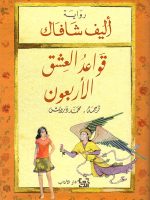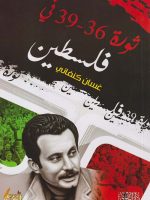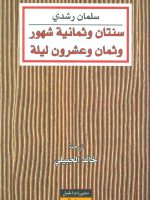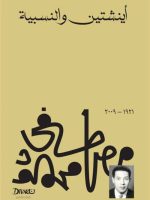This book is a collection of letters that came in response to some of the questions posed to Ibn Arabi by some of the sheikhs, scholars, and contemporaries. It also contains a collection of books that address some important Sufi ideas, such as the issue of annihilation, oneness, manifestation, beauty, the meaning of eternity, the seven heavens, the spirituality of each heaven and its specialities, the spirituality of the spheres, and other ideas that open new horizons for our understanding of religion and Sufism.
Ibn Arabi’s Letters
د.ا7.50د.ا8.00
A collection of letters written by Muhyiddin Ibn Arabi, addressing profound spiritual and philosophical topics that reflect a distinctive Sufi thought.
Available on backorder
| Categories: | Literature, Islamic literature, Messages, Philosophy |
|---|---|
| Tags: | Islam, Islamic Studies, Spirituality, thought |
| Author | |
|---|---|
| Year | |
| Publisher | Dar al-Kutub al-Ilmiyyah |
You may also like…
-
Messages from the Qur’an
د.ا9.00This book contemplates the meanings of the verses of the Qur’an and presents spiritual messages and life lessons in the distinctive style of Adham Sharqawi.
-
Letters from the Companions
د.ا10.00A book that collects imaginative literary letters inspired by the biographies of the Companions, conveying meanings of wisdom, faith, and humanity.
-
Messages from the Prophet ﷺ
د.ا13.00This book presents literary and humane reflections inspired by the Prophet’s biography and stances, in a contemporary style that touches the heart and mind.
-
My Arch Enemy
د.ا7.00The novel is an exciting story of letters that reveals the development of its heroine’s relationship with a mysterious person through the exchange of correspondence, within a framework of romance and drama.
د.ا8.00
Related products
-
The Forty Rules of Love
د.ا10.65is a novel written by the Turkish author Elif Shafak,[1][2][3] Her interest in writing this book was influenced by the degree she received in Gender and Women’s Studies.[4] The book was published in March 2009.[5] It is about the Persian mystic poet Maulana Jalal-Ud-Din, known as Rumi and his companion Shams Tabrizi.[6][7] This book explains how Shams transformed a scholar into a Sufi (mystic) through love.[8] More than 750,000 copies of this book were sold in Turkey and France
د.ا12.78 -
The Da Vinci Code
د.ا8.52- The Da Vinci Code is a 2003 mystery thriller novel by Dan Brown. It is Brown’s second novel to include the character Robert Langdon: the first was his 2000 novel Angels & Demons. The Da Vinci Code follows symbologist Langdon and cryptologist Sophie Neveu after a murder in the Louvre Museum in Paris entangles them in a dispute between the Priory of Sion and Opus Dei over the possibility of Jesus and Mary Magdalene having had a child together.
د.ا10.65 -
Revolution of 36-39 in Palestine
د.ا2.13Until his early death, Ghassan Kanafani published eighteen books, and wrote hundreds of articles and studies on culture, politics, and the struggle of the Palestinian people. Following his assassination, all of his books were republished in Arabic, in several editions
د.ا3.55 -
Land of sad oranges
د.ا2.13Ghassan Kanafani is a Palestinian novelist, storyteller, and journalist, and is considered one of the most famous Arab writers and journalists in the twentieth century. His literary works, including novels and short stories, were deeply rooted in Arab and Palestinian culture
د.ا3.55 -
Pulse
د.ا12.00A novel that sheds light on the internal conflict between mind and heart, and addresses themes of love, sacrifice, and the search for self in a world filled with challenges.
-
Flower swordsman
د.ا7.10The Swordsman of Flowers is a collection of prose texts that combines irony and sadness and expresses issues of freedom and human oppression
د.ا8.52 -
Two years, eight months and twenty-eight nights
د.ا7.10A book that blends fiction and nonfiction to explore issues of religion, identity and human conflict
د.ا8.52 -
Anichatin and relativity
د.ا2.13In this book, its author, Dr. Mustafa Mahmoud, tries in his style known as ease and extreme logic in understanding the theory of relativity of the physicist Albert Einstein so that it suits the understanding and perception of the general public, and in a strong objection to limiting information to a few scientists under the pretext of depth and specialization, which may lead to the isolation of science, supporting in his book what Einstein himself called for to spread science among people, Einstein hated scientific fortune-telling and fabrication of mystery, claim, and magnification, and he used to say that the truth Never mind.
د.ا4.26













Be the first to review “Ibn Arabi’s Letters”